Bringing farming to homes: Partners in Laguna promotes urban farming through mushroom growing and hydroponics
By James Tababa
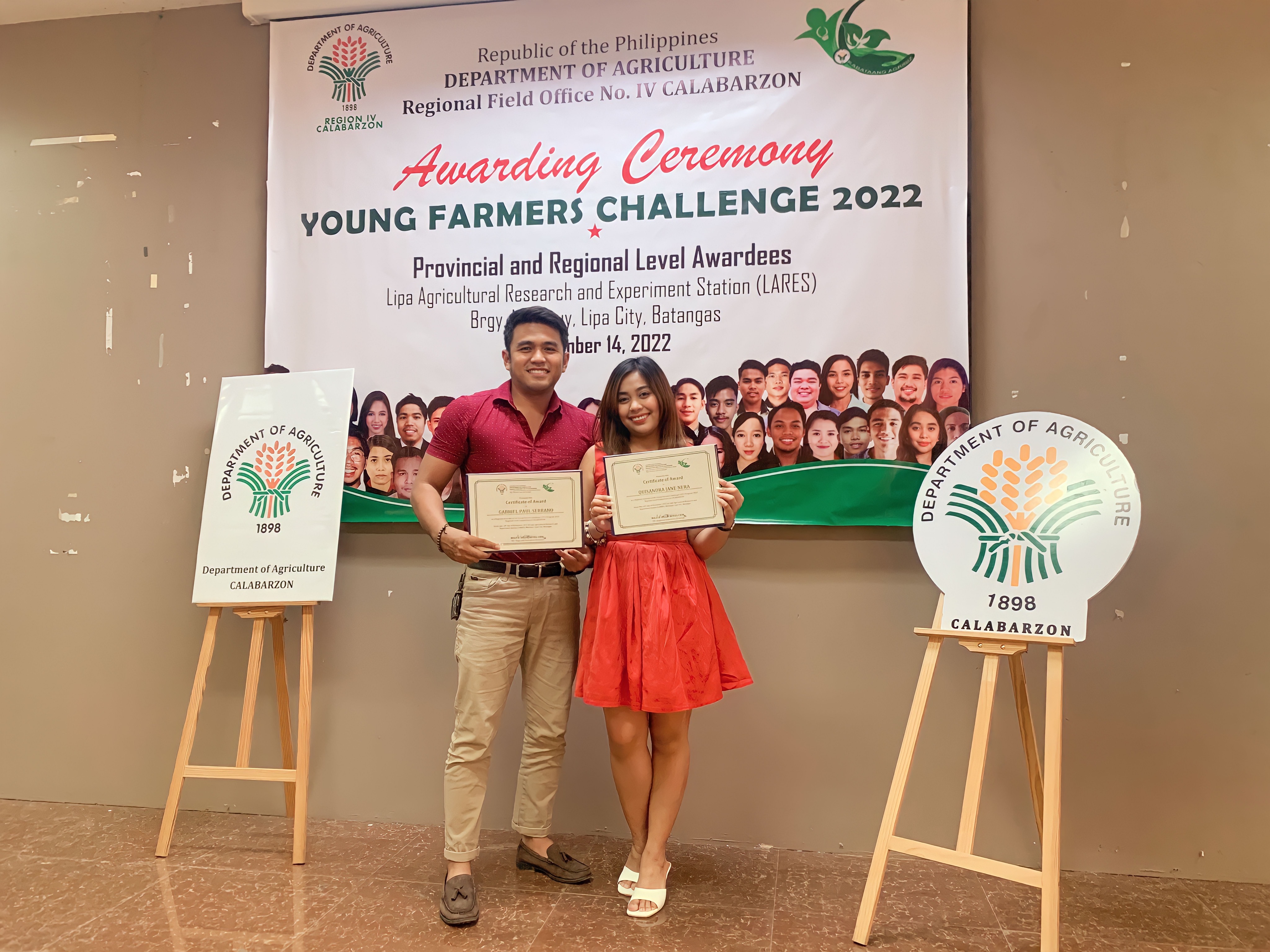
Gabriel Serrano and Sandy Nera are the partners behind Siyudad Agrikultura, an innovative urban farming venture in Calauan, Laguna that embodies an approach to agriculture that aims to address challenges in limited city spaces. Siyudad Agrikultura has evolved into a multi-faceted endeavor specializing in various cultivation techniques such as mushroom growing and hydroponics, with a primary focus on lettuce production. Beyond its agricultural pursuits, Gabriel and Sandy aim for empowerment and inspiring the youth to engage in farming.
The establishment of Siyudad Agrikultura
Gabriel's agricultural background can be traced back to his grandparents, uncle, and aunt, all of whom have been engaged in farming. However, Gabriel's parents did not choose a career in farming. Nonetheless, Gabriel's father, who originates from a family of farmers, initiated his family into the practice of urban gardening.
Gabriel's father harbored an interest in urban gardening, resulting in the cultivation of multiple crops in open plots within the subdivision where the family resides. Regrettably, the subdivision authorities intervened, leading to the removal of the crops.
“At that time, I wondered whether we could farm or garden while living in the city. The challenge wasn't just the limited space, but also whether it was permitted,” Gabriel said.
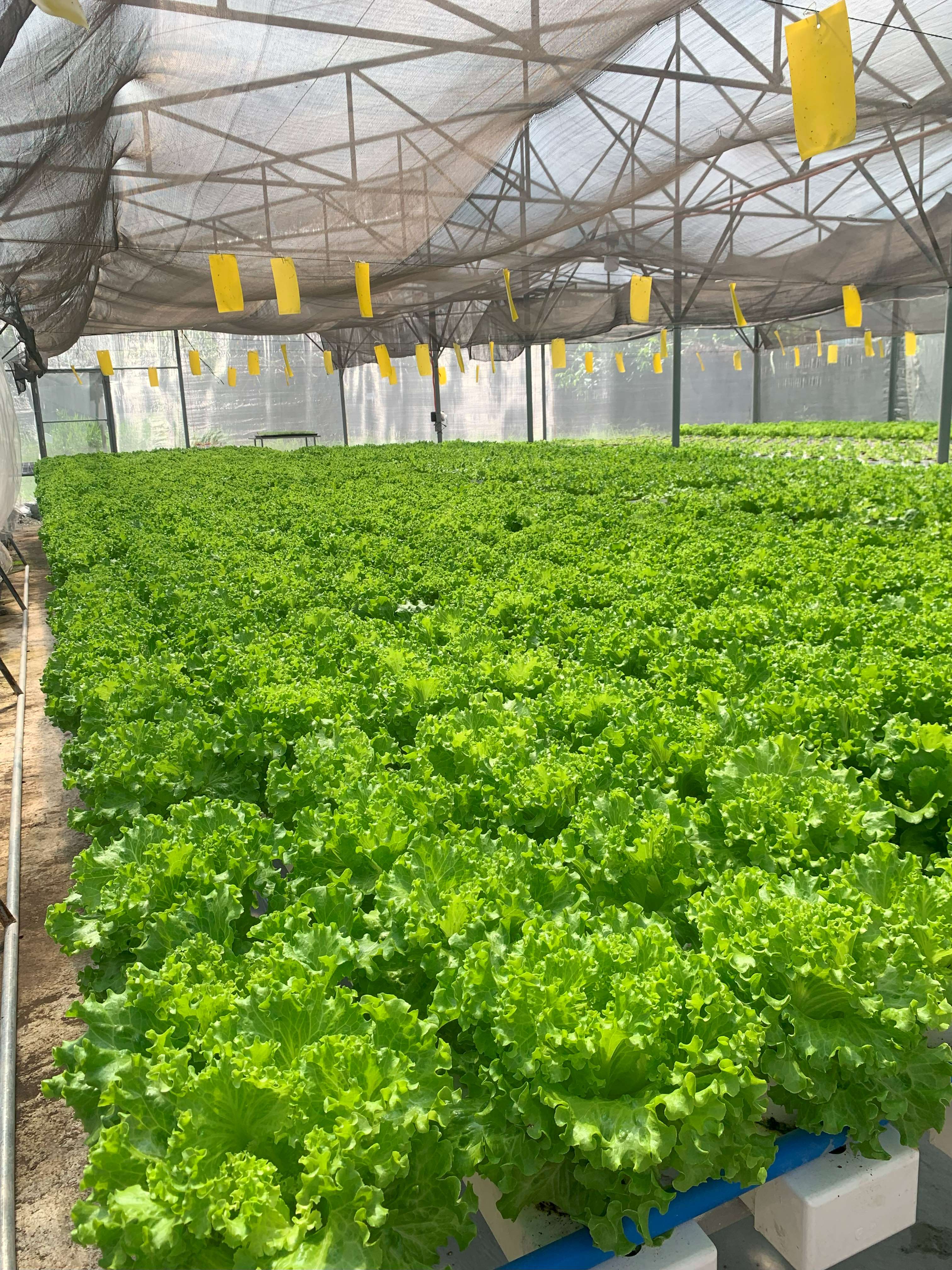
Sandy Nera holds a Bachelor of Science degree in Accountancy and has a professional background in tax accounting and auditing within the private sector. Despite having a career distant to agricultural pursuits, Sandy Nera was enticed by Gabriel to pursue agriculture and farming. Her motivation for this unexpected career change stems from a personal aspiration to establish a meaningful and purposeful business venture. Engaging in farming has provided her with a strong sense of purpose and satisfaction.
Determined to overcome challenges, Gabriel and his partner Sandy set out to prove that farming could flourish in even the most constrained urban environments.
The start of Siyudad Agrikultura was marked by curiosity and innovation. Gabriel and Sandy, a soon-to-be-married couple, set out on a mission to redefine urban farming and make it accessible to everyone. They began their agricultural journey with mushrooms, an idea they discovered online. As they explored urban farming further, they integrated hydroponics and lettuce cultivation.
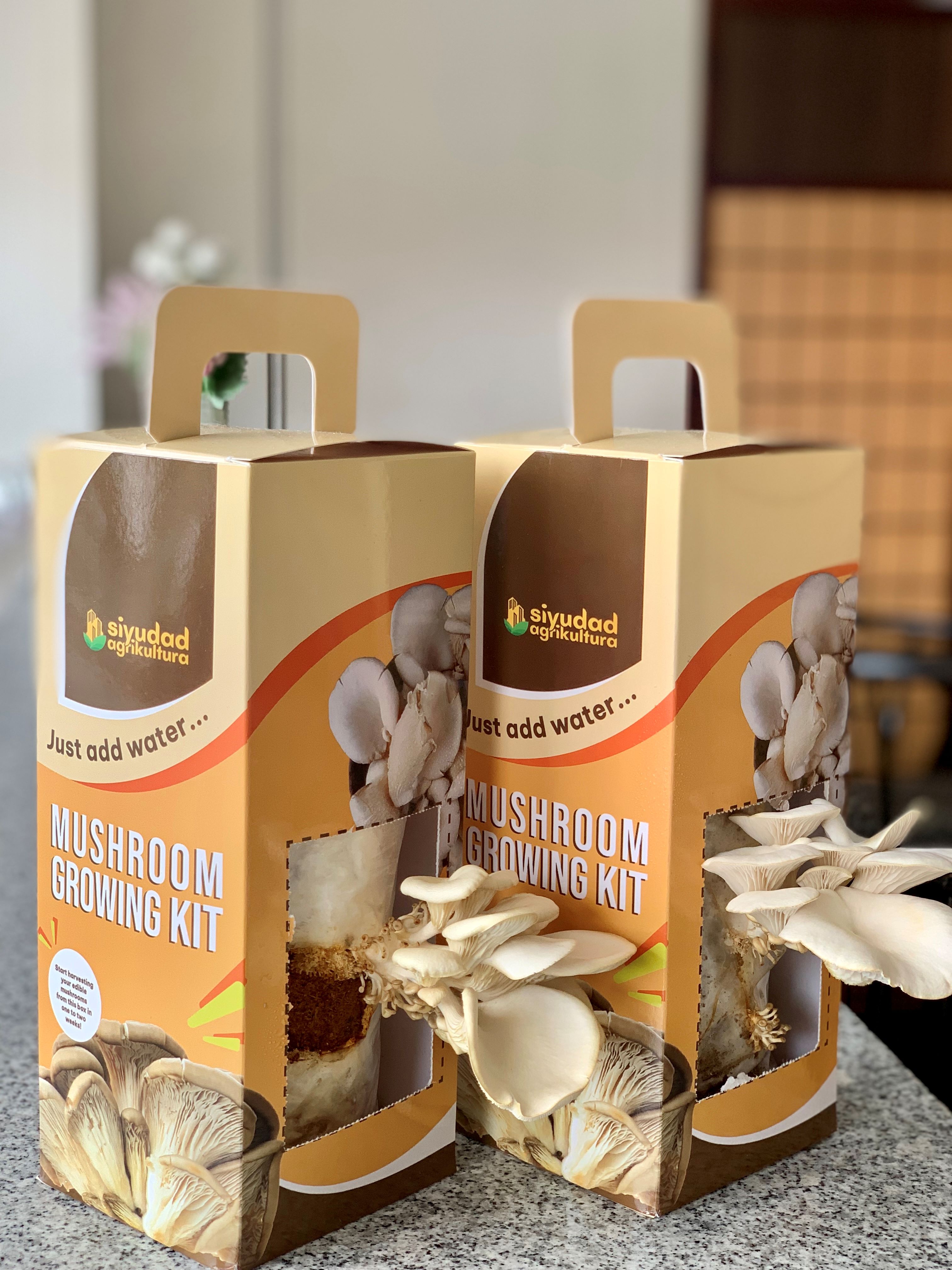
With dedication, they built a greenhouse for growing lettuce, aiming to offer a practical solution for city residents in search of fresh produce. The name "Siyudad Agrikultura" captured their commitment to urban farming, showcasing their enthusiasm for nurturing life within city boundaries.
In 2022, Gabriel and Sandy decided to take a chance and join the Young Farmer's Challenge (YFC), a competition by the Department of Agriculture aimed at engaging and supporting young individuals who are interested in agriculture and farming. Despite their initial hesitation and busy schedules, they saw the competition as a way to test their skills and promote their agri enterprise.
“The YFC program recognizes winners at the provincial, regional, and national levels,” Gabriel said. “Initially, our goal was to win at the provincial level, but we exceeded expectations by becoming one of the top 35 finalists at the national level.”
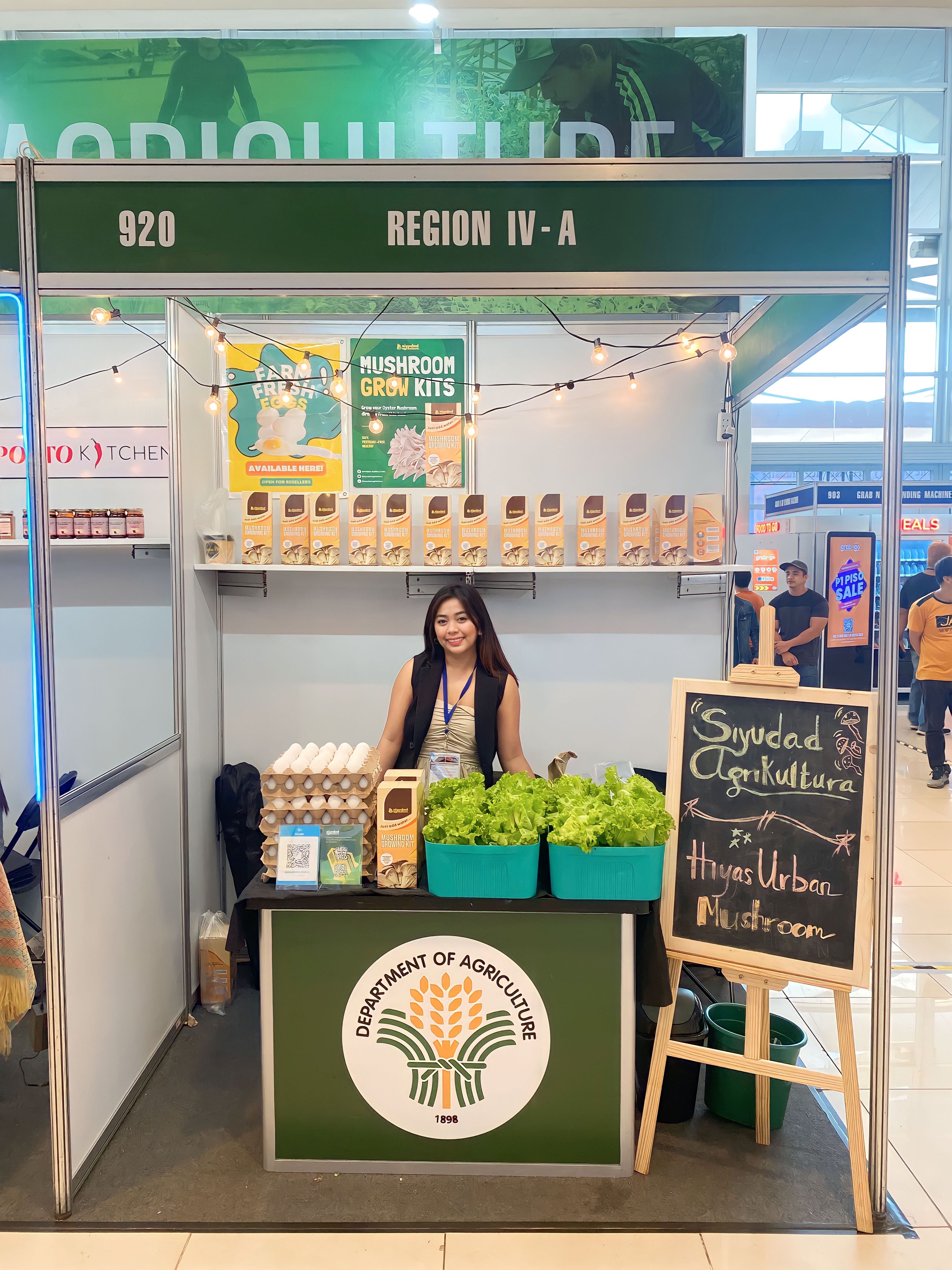
“Initially, we were quite hesitant to participate and take the plunge, given our existing steady jobs and busy schedules,” Sandy added. “Balancing our time seemed challenging. However, we decided to embrace the risk and seize the opportunity. I even resigned from my job to fully concentrate on the business.”
Mushroom growing kit and hydroponics
Growing mushroom fruiting bags at home has proven to be easy to do. About five years ago, Gabriel experimented with crafting these bags for growing mushrooms. He generously shared these bags as gifts with friends and family. Unfortunately, when Gabriel inquired about the progress of these gifts, it became apparent that the recipients had not taken proper care of them. This experience led Gabriel to come up with an innovative idea and decided to create interactive packaging and designs to make the process more engaging for consumers.
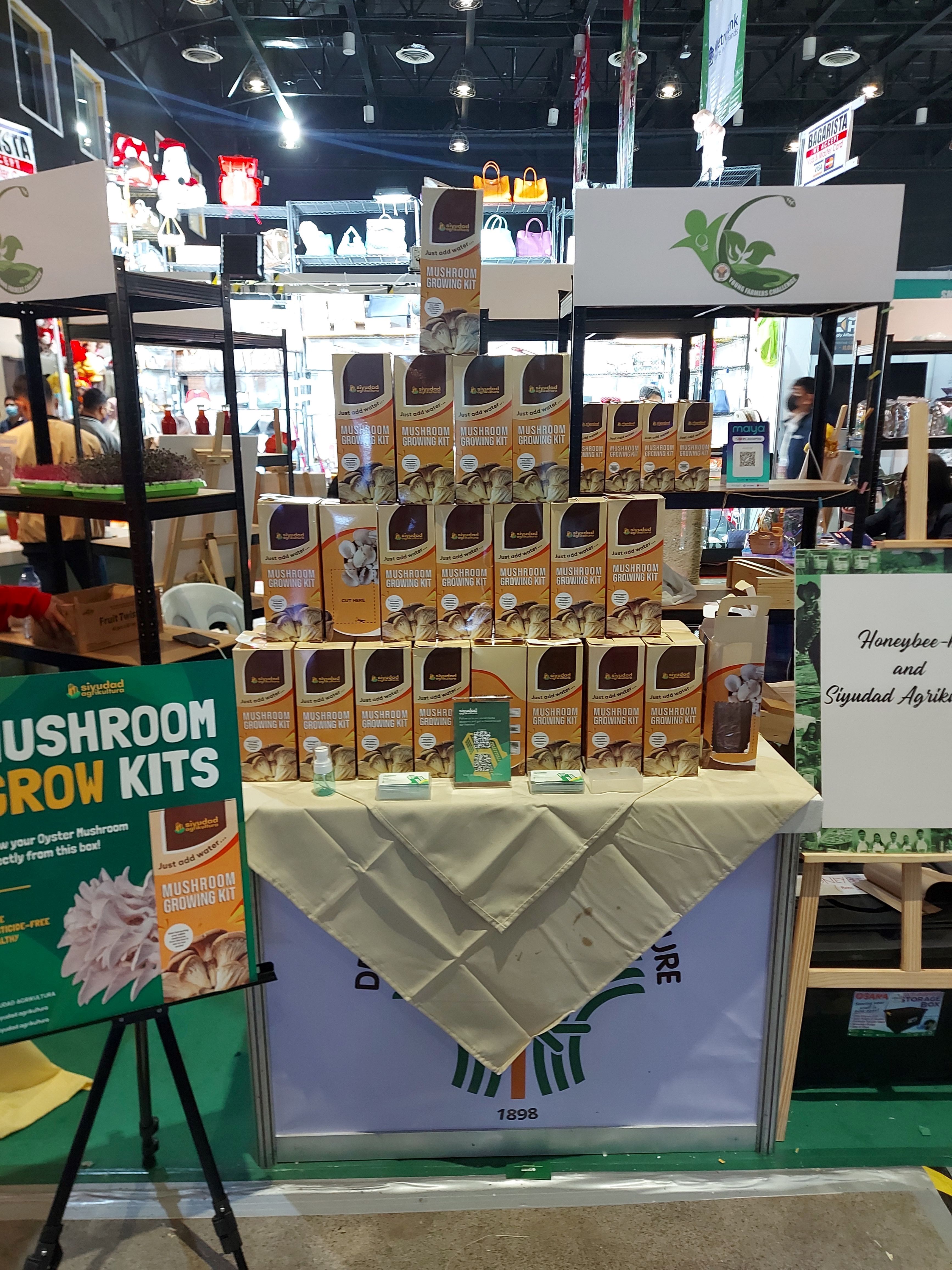
Before officially launching the product in the market, Gabriel decided to distribute a different type of kit. Instead of providing the fruiting bags directly, he offered to grow kits complete with packaging, a sprayer, and easy-to-follow instructions. This pre-release strategy yielded valuable results, including feedback and photos of successfully grown mushrooms from recipients.
According to Gabriel, in the production of fruiting bags, the utilization of a substrate becomes essential. However, it's important to note that not all types of media are suitable as substrates in mushroom production. Optimal results are often achieved through the utilization of quality lumber. In Gabriel’s initial experimentation, he used sawdust sourced from coconut lumber. This choice, however, presented a challenge due to pH-related issues. Additionally, making substrates involves an eight-hour heating process aimed at eliminating bacterial presence. After this, the treated substrate is placed within plastic bags alongside the spawn. The entire process of substrate and spawn preparation is intricate, with vulnerability to contamination.
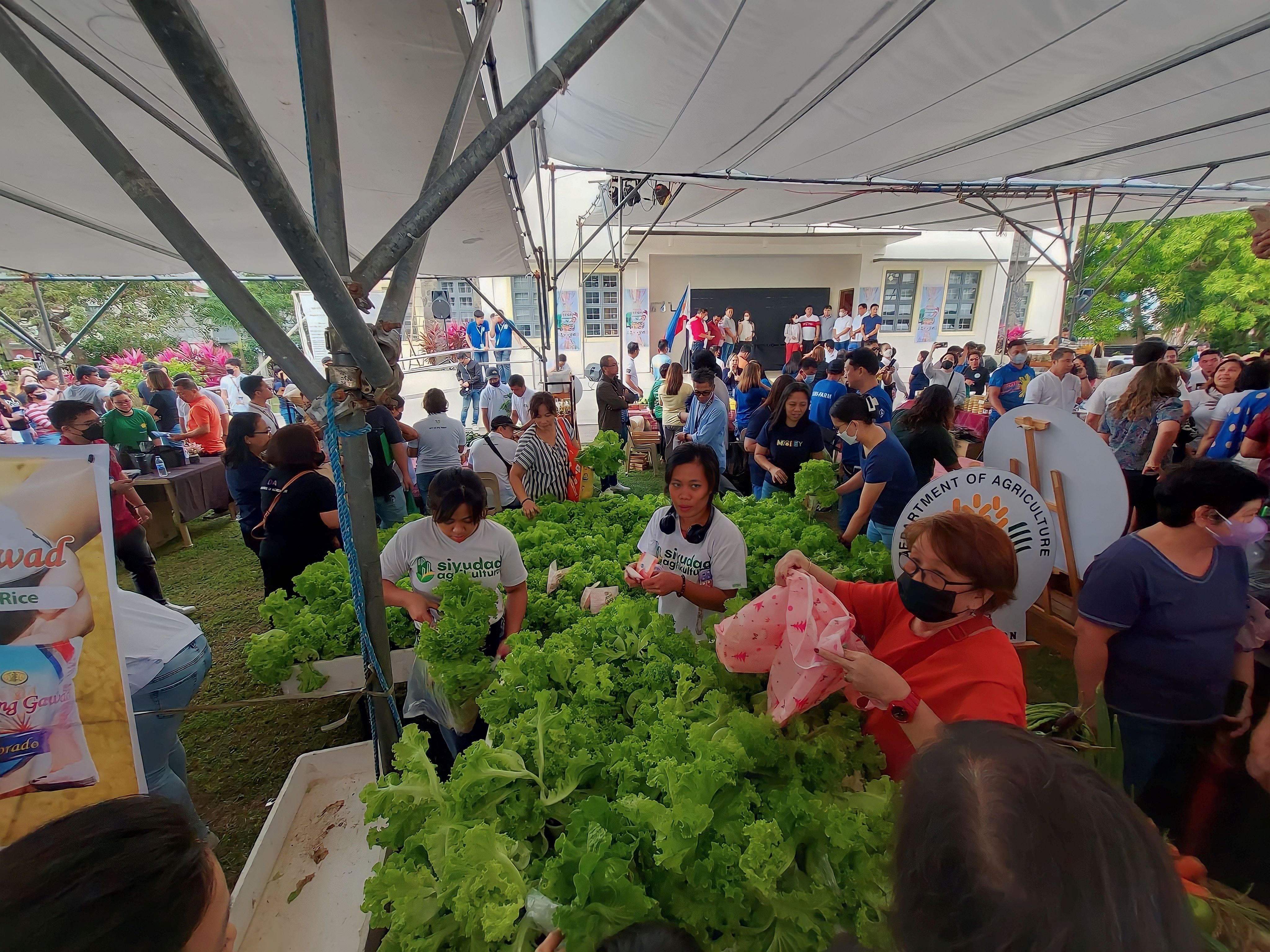
“The prime objective of creating our product is to cater to urban residents, offering them a simplified means of mushroom cultivation that circumvents the complexities of these processes,” Gabriel said. “The innovative approach revolves around a specially designed growing kit that streamlines the growth process, eliminating the need for complicated steps.”
Gabriel said that using this kit to make oyster mushrooms grow is easy. Just dampen the growing bag, make a small hole in the plastic, and spray water now and then. These simple steps help the mushrooms grow over time. You can put the kit anywhere you want, but keep it out of direct sunlight.
“Each fruiting bag does not follow a fixed harvesting interval, but the dry weight of the substrate corresponds to the mushroom yield,” Gabriel said. “Our grow kit consistently yields a dry weight of 300 grams, regardless of the number of times the fruiting bag produces mushrooms. Therefore, an estimated 300 grams can be harvested.”
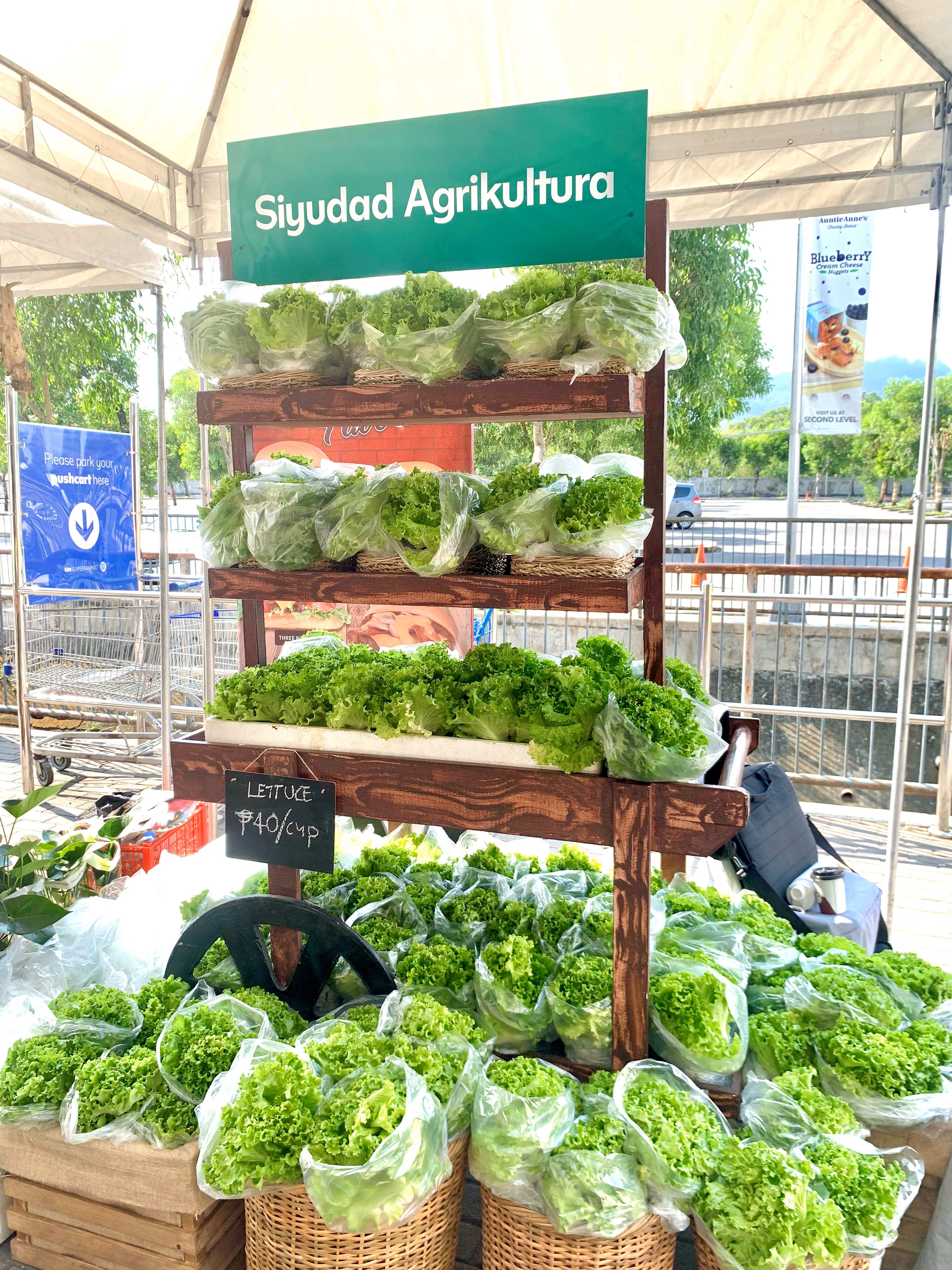
Gabriel's choice to focus on hydroponics and lettuce cultivation is based on practical considerations. The Kratky method stood out as a simple solution for growing crops in limited spaces. Referred to as "set and forget," this method doesn't require complex technical setups. It can even be done using plastic containers, making it a convenient option for home gardening. The combination of mushroom cultivation and hydroponics aligns with Gabriel and Sandy’s goal of creating an accessible and rewarding experience for home growers.
Sandy proudly stated that they have several lettuce resellers now. Additionally, Gabriel and Sandy supply lettuce to various establishments, including restaurants, samgyupsal restaurants, vegetable dealers, and K-marts. The pricing of lettuce to resellers is P30 per cup, while walk-in customers are charged P40, while a single mushroom growing kit retails at P190. Interested parties can procure these kits from online platforms such as Shopee, Lazada, and Tiktok shop.
Challenges encountered
There were several challenges faced by Gabriel and Sandy. Initially, a problem emerged with the contractor causing a delay in the greenhouse construction. Later on, they hired someone less enthusiastic than they were about plant care and greenhouse maintenance, so they had to let that employee go.
A more disheartening hurdle appeared in November of 2021. Just after they had decided to ramp up their production, a strong typhoon hit, damaging the greenhouse roof and causing flooding that harmed their water reservoir. This unfortunate sequence of events led to the devastation of their lettuce crop, which was on the verge of its first harvest.
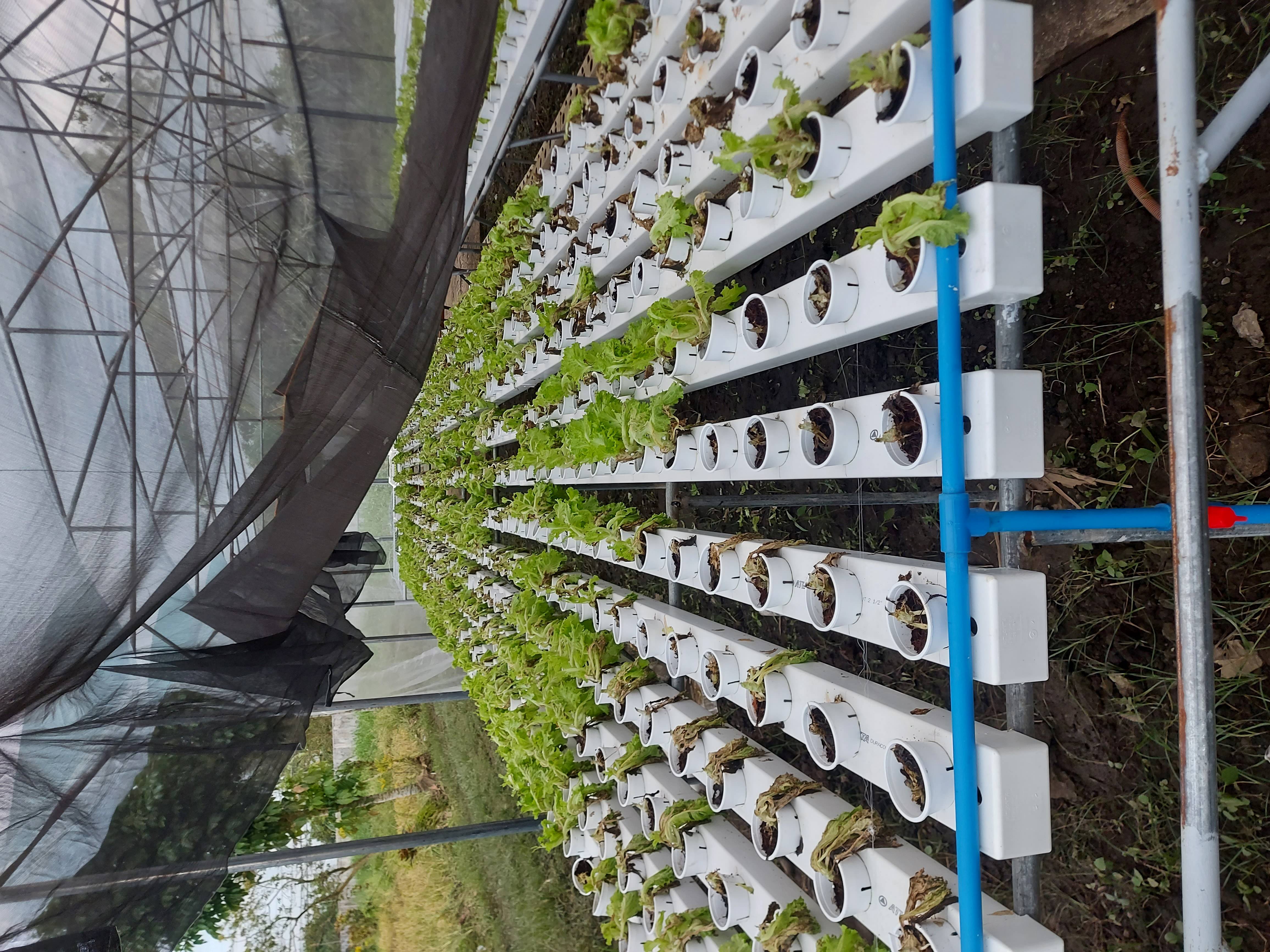
Another hurdle Gabriel and Sandy encountered is the competitive nature of the market. They find it challenging to match the lower pricing of lettuce sourced from Baguio. This dilemma has led to an oversupply of lettuce, resulting in difficulties in selling the entire yield.
“There was a period when we shared all our lettuce with our neighbors, who used it to feed their pigs,” Garbriel said.
However, things have stabilized and their production capacity currently stands at 5000 lettuce heads per month.
In the initial stages, they encountered resistance due to the new concept of selling lettuce in cups. However, this obstacle has been overcome over time by actively introducing their products to the local community.
The motivation driving Sandy's efforts comes from her deep-seated belief in their products. “By trusting in ourselves and our product, we also build trust with our consumers,” she said. “We hold onto the hope that our business will eventually experience a significant breakthrough. Ensuring our consistency remains a priority in all our endeavors.”
Gabriel draws personal inspiration from their early years when the aspiration of owning their own farm was a strong desire. In his conversation with Sandy contemplating what to call ourselves, “She suggested she take on the role of Chief Operating Officer (COO), and I would assume the position of Chief Executive Officer (CEO).” He said. “However, I prefer to be called the Chief Executive Farmer, as it truly embodies my passion.”
Despite facing challenges such as contractor issues, the devastation caused by a typhoon, and even market uncertainties for their lettuce produce, Gabriel remains determined. “I believe that these challenges are merely obstacles, and I should not give up on my dream,” Gabriel said.
Empowering youth and mission beyond farming
Operating as an agribusiness farm, Gabriel's role goes beyond just providing livelihood. The farm connects with suppliers and serves customers, supporting their businesses. However, beyond this, a significant goal for Gabriel and Sandy, as YFC awardees, is to empower young people. They aim to challenge the perception that farming is tough – a belief often discouraging young individuals. Conversations with their fellow YFC awardees revealed shared experiences of discouragement from others.
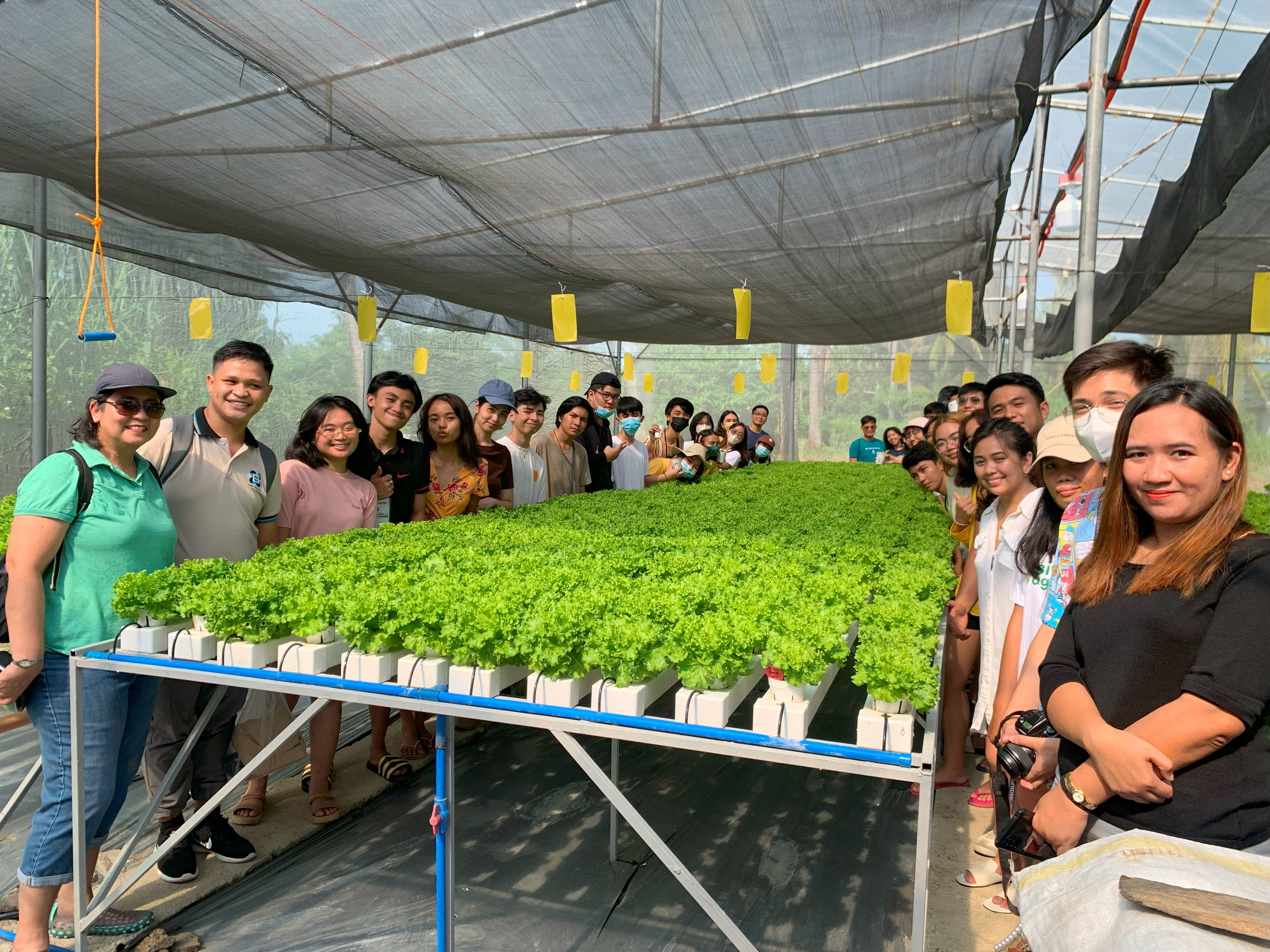
Gabriel and Sandy are determined to show that farming can be profitable. They actively involve the youth, partnering with the Department of Science and Technology (DOST) for Lakbay Aral educational field trips. High school students visit the farm to learn about hydroponics. The farm also welcomes student inquiries for their theses and hosts intern students.
Gabriel and Sandy aim to expand beyond just lettuce, considering additional crops. There's their hopeful ambition to supply supermarkets, contributing to the country's food supply chain. Additionally, they also plan for technological advancements geared toward simplifying production and sharing these improvements with fellow farmers.
The advice shared by Sandy extends beyond aspiring farmers but also applies to the broader public, “Whether you're pursuing a business venture or following your passion, consistency is key,” she said. “Believe in yourself and trust your instincts. Persevere in your efforts. If you halt and lose the courage to continue, success becomes elusive. Progress requires crossing a bridge to reach your desired destination. You construct this bridge to overcome challenges and attain your goals. Personally, I've faced breakdowns amid numerous struggles, but unwavering consistency and determination have been my guiding lights. With persistence, you will ultimately achieve your aspirations.”
From Gabriel's perspective, people are drawn to farming as a business venture. However, he recognizes that not everyone can be persuaded into farming due to diverse personal passions. Yet, “For aspiring farmers, the first step is to build the market and then focus on learning the technology,” he said. “This is because even if you possess all the technical knowledge, without a market, your product will end up going to waste. It's important to note that, just like any other business, farming comes with its fair share of challenges. When people talk about farming being difficult, it's worth acknowledging that all businesses present their own set of challenges.”
Photo courtesy of Siyudad Agrikultura